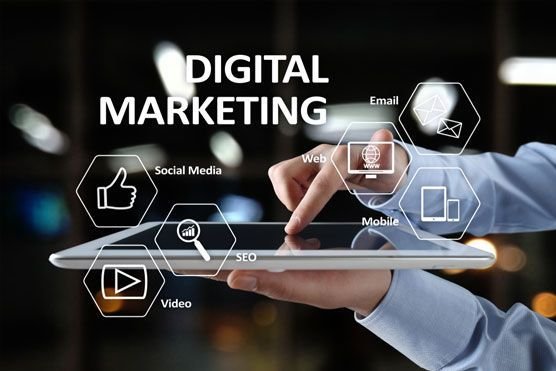
Why digital marketing is important ?
In the ever-evolving landscape of business, one thing remains constant: the paramount importance of digital marketing. As we navigate through 2024, the digital realm continues to reign supreme, presenting unparalleled opportunities for businesses to connect, engage, and thrive. In this comprehensive guide, we delve into the reasons why digital marketing remains indispensable in 2024.
1. Unmatched Reach and Accessibility
Digital marketing transcends geographical boundaries, enabling businesses to reach audiences across the globe with unprecedented ease. In an era where connectivity knows no bounds, harnessing the power of digital platforms allows brands to tap into vast pools of potential customers, irrespective of their location. Whether through social media, search engines, or email campaigns, the reach afforded by digital marketing is unparalleled, offering businesses the opportunity to amplify their message and expand their presence on a global scale.
2. Targeted and Personalized Communication
In the age of information overload, relevance is key. Digital marketing empowers businesses to tailor their messaging with surgical precision, ensuring that it resonates with the right audience segments. Through advanced targeting capabilities, such as demographic profiling, behavioral targeting, and remarketing strategies, businesses can deliver personalized content that speaks directly to the interests and needs of their audience. This not only enhances engagement but also fosters deeper connections and drives conversion rates, ultimately leading to a more efficient allocation of marketing resources.
3. Data-Driven Insights and Analytics
One of the most significant advantages of digital marketing is the wealth of data it generates. Every click, like, and share provides invaluable insights into consumer behavior, preferences, and trends. By leveraging analytics tools and tracking metrics such as website traffic, conversion rates, and customer journey analytics, businesses can gain a comprehensive understanding of their audience and optimize their marketing strategies accordingly. This data-driven approach enables agile decision-making, allowing businesses to refine their tactics in real-time and maximize the return on investment (ROI) of their marketing efforts.
4. Enhanced Customer Engagement and Interaction
In today’s hyper-connected world, consumers expect more than just passive advertisements—they seek meaningful engagement and authentic interactions with brands. Digital marketing offers a myriad of opportunities for businesses to foster dialogue and build relationships with their audience. Whether through interactive content, social media engagement, or community building initiatives, brands can create immersive experiences that resonate with consumers on a deeper level. By actively listening to customer feedback and responding promptly to inquiries, businesses can nurture loyalty and advocacy, turning satisfied customers into brand ambassadors.
5. Cost-Effectiveness and Scalability
Compared to traditional forms of marketing, digital marketing offers a cost-effective alternative that delivers superior results. With its pay-per-click (PPC) model, businesses can allocate their budget with precision, paying only for actual clicks or conversions. Moreover, digital campaigns can be scaled up or down effortlessly to accommodate changing business needs and market conditions. Whether you’re a bootstrapped startup or a multinational corporation, digital marketing provides a level playing field, allowing businesses of all sizes to compete effectively and achieve their marketing objectives without breaking the bank.
6. Adaptability in a Dynamic Landscape
In the fast-paced world of business, adaptability is the key to survival. Digital marketing affords businesses the flexibility to pivot quickly in response to evolving trends, technologies, and consumer behaviors. Whether it’s embracing new social media platforms, experimenting with emerging marketing channels, or refining targeting strategies based on market feedback, digital marketers can stay one step ahead of the competition by remaining agile and adaptable. By continuously iterating and refining their approach, businesses can future-proof their marketing efforts and stay relevant in an ever-changing landscape.
Conclusion
As we venture further into the digital age, the importance of digital marketing only continues to grow. With its unparalleled reach, targeted communication, data-driven insights, and cost-effective nature, digital marketing has become an indispensable tool for businesses looking to thrive in 2024 and beyond. By embracing the opportunities afforded by the digital realm and adopting a customer-centric approach, businesses can unlock new avenues for growth, forge stronger connections with their audience, and remain competitive in an increasingly digitized world.
